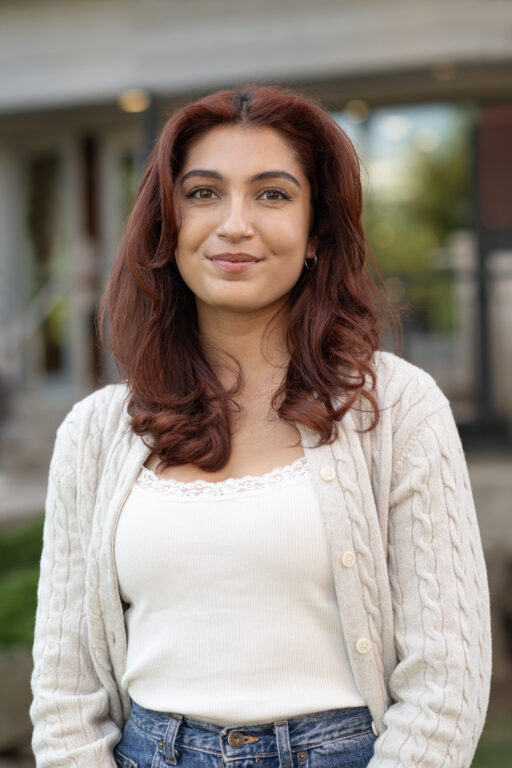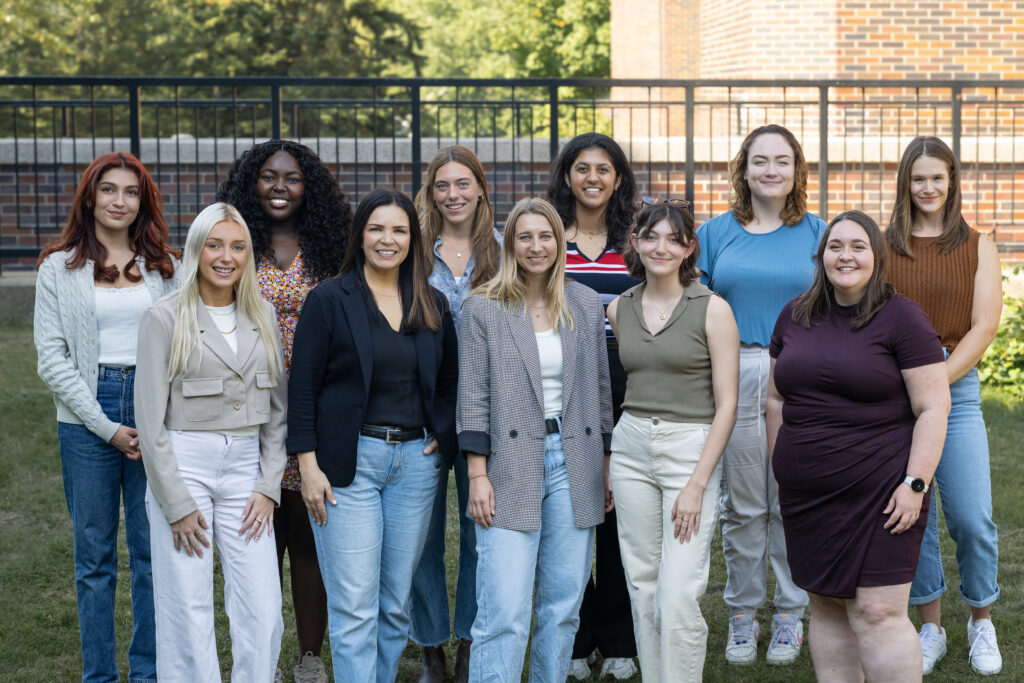Q&A with Zara Hewson
Zara Hewson (BA/24) is a recent graduate from Carleton University’s Psychology program. With her refined research skills and specialized courses in developmental psychology, she has secured a role in the Rogers Child Mental Health Lab, led by Professor Maria Rogers. We asked Zara to reflect on her time in the Psychology program, and what she has planned for her future.

What brought you to Carleton’s Psychology program?
I’ve always known I wanted to work with children, and my interest in mental health and psychology research really grew after taking a high school course on the subject. When I discovered Carleton’s Psychology program, I was especially drawn to the Honours program because it offered the opportunities to specialize in developmental psychology and mental health and well-being along with the chance to complete an honours thesis or research project. It felt like the perfect fit for my interests and goals.
What topic did you choose for your honours thesis? Can you tell us about that research, how you collected your data, and what interested you in this topic?
Yes! My honours thesis explored how parent-child relationships and parental self-efficacy in supporting learning influenced the learning behaviours of children with and without ADHD during the COVID-19 pandemic. I was fortunate to have Dr. Maria Rogers as my supervisor, who had collaborated with several other labs across Canada on a longitudinal study examining parent and child experiences throughout the pandemic. Data was collected for this study at four different time points, and I chose to analyze data from Spring 2021—one year into the pandemic. My research interests primarily center around how parental and school factors shape children’s behaviours and well-being. Since the pandemic led to a sudden shift to remote learning, I was particularly interested in understanding how parents’ involvement and relationships with their children may have influenced their motivations and efforts to learn in such a unique and challenging environment.
What are some things you’ve learned through your (or your colleagues’) research on ADHD that we might find surprising?
One surprising finding from my honours thesis research was that the quality of parent-child relationships predicted learning behaviours for children without ADHD but not for those with ADHD. This suggests that, for children with ADHD, other factors might play a bigger role in shaping their motivations and efforts to learn, highlighting how different factors may interact in ways we might not expect in research. I’ve also come across some insightful findings through my colleagues’ research, including Dr. Rogers’ recent work on school attendance and chronic absenteeism in children and teens. While many assume school attendance is a well-researched topic, her work reveals that it’s actually quite understudied in Canada, especially when looking at children with mental health challenges. Given how critical school attendance is for children’s academic and social development, this gap in research is something that needs more attention.

How did you get involved in Dr. Maria Rogers’ lab? Was this your first experience with a research lab?
I first got involved with Dr. Rogers’ lab as an honours student in the fourth year of my undergraduate studies, which was my first time working in a research lab. After graduating in Spring 2024, I took on the role of laboratory manager at Rogers Child Mental Health Lab. In this role, I help coordinate lab meetings and events to foster collaboration among team members while also supporting Dr. Rogers’ research through data collection, analysis, and knowledge mobilization. One of the things I love most about working in the lab is contributing to research that directly supports Canadian students and families. For example, we’ve studied family experiences during the COVID-19 pandemic, and we’re currently working on projects related to school attendance and chronic absenteeism. It’s been such a rewarding experience to be part of a team dedicated to understanding and improving mental health and educational outcomes for children.
What are your hopes for the future (near and/or far)?
In the near future, I hope to pursue my Master’s in Psychology, followed by a Ph.D. in Developmental Psychology. My long-term goal is to continue researching parent-child relationships and how they shape children’s social, emotional, and academic outcomes, examining these dynamics from both child and parent perspectives. Ultimately, I want my work to contribute to meaningful resources and interventions that support child development, resilience, and strong family relationships. I’m especially passionate about ensuring that research translates into real-world support for families and children.